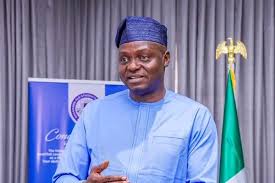In a dramatic revelation, the Minister of Humanitarian Affairs and Poverty Reduction, Dr. Nentawe Yilwatda, has accused certain politicians of attempting to manipulate the national social register to gain undue influence over beneficiaries of the government’s conditional cash transfer scheme.
Speaking on Channels Television’s Sunrise Daily programme, Dr. Yilwatda exposed the extent of political interference in the programme aimed at alleviating poverty across Nigeria. He described how these politicians have pressured his ministry to modify the list of eligible recipients, a move he described as unacceptable.
“Some people want us to bend and allow the governors or the states to just generate the list and send,” the minister revealed. “It’s a conditional transfer; conditions are attached to qualifying to benefit from the social safety net. Poverty doesn’t know political party, poverty doesn’t know tribe, poverty doesn’t even understand the grammar we are blowing. A poor person is a poor person.
Determined to ensure accountability, Dr. Yilwatda announced sweeping changes to the cash transfer process. These include making the National Identification Number (NIN) and Bank Verification Number (BVN) mandatory for all beneficiaries. “It is going to be clearly digital. This time around, we are carrying the CSOs [civil society organisations] along so that all payments, we will ask them to verify, they can do follow-ups, and we can have some levels of transparency in what we are doing,” he explained.
The new measures have temporarily suspended cash transfers to allow for a comprehensive audit of the social register. According to the minister, the existing register lists 19.8 million poor Nigerians, but only 1.2 million individuals have been validated so far.
“Currently, we have a social register… but when you have a list, you need to validate that list. For now, the people that have been validated are only about 1.2 million people,” Dr. Yilwatda said. He further detailed the validation process, which involves confirming the identities and locations of potential beneficiaries using GPS mapping to ensure they meet the programme’s poverty criteria.
The programme aims to distribute N75,000 to 15 million poor households. However, Dr. Yilwatda stressed the importance of targeting only the truly needy. “We need to validate the entire register so that we can get the actual people who are supposed to benefit from it,” he stated. The validation will use social indices such as access to water, healthcare, education, and economic facilities to identify the “poorest of the poor.”
The Ministry of Humanitarian Affairs and Poverty Reduction has long been at the center of controversy. Established under former President Muhammadu Buhari, it has faced numerous allegations of corruption and mismanagement.
In October 2024, President Bola Tinubu appointed Dr. Yilwatda to replace Betta Edu, who was suspended in January 2024 following allegations of embezzlement. Edu was accused of approving the transfer of N585,198,500 into a private account, a charge she vehemently denied, claiming it was part of a smear campaign against her.
Before Edu, the ministry’s first head, Sadiya Farouq, was also investigated for allegedly laundering N37.1 billion during Buhari’s administration. These repeated scandals have cast a shadow over the ministry’s efforts to alleviate poverty and build trust with the Nigerian public.

